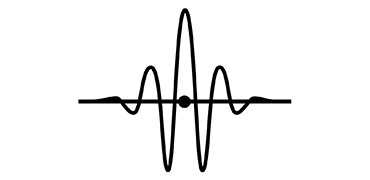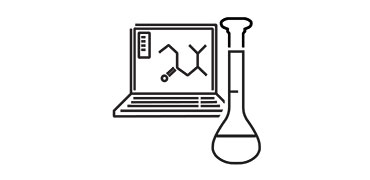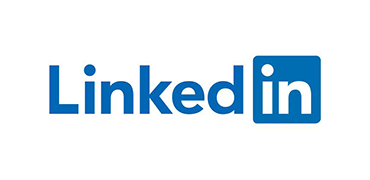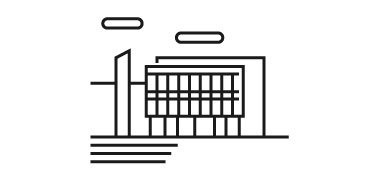News
Novo Nordisk Grant
12.11.2024
Exploring Earth-abundant manganese’s potential to replace rare and expensive metals
With a DKK 16.5 million grant, chemist Christina Wegeberg sets out to explore the potential of the Earth-abundant metal manganese to harvest sunlight. If she succeeds, manganese may serve as an alternative to the rare and expensive noble metals used today.
Achaeometry
25.07.2024
Chemical Analyses Find Hidden Elements from Renaissance Astronomer Tycho Brahe’s Alchemy Laboratory
Tycho Brahe was most famous for his contributions to astronomy. However, he also had a well-equipped alchemical laboratory where he produced secret medicines for Europe’s elite.
Astrophysics
18.01.2024
A new image of a black hole captivates astrophysicists
In 2019, the world saw the first-ever image of a black hole. Now, researchers present a new image of the same black hole, and they are thrilled to observe the similarities between the images.
Archaeometry
16.01.2024
Despite intensive scientific analyses, this head remains a mystery
For almost 200 years, archaeologists have been puzzled by a mysterious brown stain on the ancient Greek Parthenon temple in Greece. Now, researchers from SDU have conducted new scientific analyses, and their verdict is clear: The mystery remains.
Medicinal Chemistry
09.01.2024
The search for a good match
New drugs, like good partnerships, are built on a good match. Finding a good match between chemical substances and their targets is a typical starting point in the development of new drugs. Stefan Vogel aims to accelerate this development with a NERD grant of DKK 14 million from the Novo Nordisk Foundation.
doctoral thesis
09.10.2023
New Doctor of Pharmacy wants to make life better for patients
Profile of Professor René Holm on the occasion of his doctor's thesis, which builds on 25 scientific publications.
chemistry
05.10.2023
The Medicine of the Future Could Be Artificial Life Forms
Imagine a life form that doesn't resemble any of the organisms found on the tree of life. One that has its own unique control system, and that a doctor would want to send into your body. It sounds like a science fiction movie, but according to nanoscientists, it can—and should—happen in the future.
chemistry
19.09.2023
New project will study molecules to understand why you are exactly you
Throughout your life, various influences can turn on and off many of your genes, creating the variations that make you uniquely you. Chemistry professor Jasmin Mecinovic wants to delve into the molecular world to understand these processes.
Pharmacy
30.08.2023
New research to reduce the risk of eye injections
With age, the risk of eye diseases increases, and consequently, so does the need for injections into the eye. Professor of Pharmacy, René Holm, aims to help reduce this risk and has now received support to develop eye drops that will remain on the eye for a longer duration.
20.07.2023
New collaboration on experimental particle physics
What is out there in the universe, and how can we describe it? These are questions that theoretical physics often seeks to answer. Now, University of Southern Denmark physicists are joining forces with Europe's second-largest particle physics laboratory, hoping to capture elementary particles.
experiment
23.05.2023
Physicists to search for traces of dark matter in new experiment
No one knows what dark matter is made of, but it could be some kind of elementary particles. A candidate is the superlight axion that SDU physicist Manuel Meyer and his colleagues now hope to capture in an underground experiment.
archaeometry
17.05.2023
New study: Surprising diversity of ethnic groups in the US Virgin Islands before Columbus
For the first time, pottery shards from St. Croix, St. John, and St. Thomas have been chemically analyzed for dating. Contrary to previous theories, the results indicate there were many different ethnic groups on the islands in the time before Columbus discovered America.
magic mushrooms
02.05.2023
How hallucinogenic substance in psilocybin mushrooms works on the molecular level
Once it was hot research. Then it was banned. Now, research on psychedelic substances is both hot and legal. There is a revival in psilocybin research in labs and clinics all over the world, including at SDU.
New professor
17.03.2023
New professor Mads Toudal Frandsen wants to develop physics at SDU: »We need to show how important physics is«
Physics is important when we are to solve the challenges of the future. Now, we need to show of the strong physics research and education, we have at SDU. That is the wish from Mads Toudal Frandsen, who has recently been appointed professor. Astro- and space physics, biophysics and collaborations with the Faculty of Engineering, IMADA and SCC will open up new opportunities, he believes.
Satellite
06.02.2023
Student satellites can contribute with important knowledge in the fight against climate change
A group of students from The University of Southern Denmark are together with students from several other Danish universities developing two satellites that can contribute to our understanding of the climate changes. Soon, they will send the first satellite into space.
Brain Cancer
31.01.2023
Radioactive drugs to track down cancer cells in the brain
There is no effective treatment for the aggressive brain cancer, glioblastoma, but researchers from SDU and OUH will now try to develop one. The idea is to load radioactive cancer-killing isotopes of certain metallic elements into specifically designed molecules that target cancer cells. This idea is supported by the Novo Nordisk Foundation with DKK 15 million.
Universe
31.01.2023
The bubbling universe
What happened shortly after the universe was born in the Big Bang and began to expand? Bubbles occurred and a previously unknown phase transition happened, according to particle physicists from SDU and Nordita in Stockholm.
26.01.2023
Astrophysics: Is it time to replace the old model?
Physicists' best model of how the universe works is more than 100 years old and it needs an update because it can no longer explain all our astrophysical observations. Astrophysicist Sofie Marie Koksbang has received DKK 6 million DKK from the Villum Foundation to contribute to working out what that update should be.
Sustainable chemistry
04.11.2022
Nobel Prize chemistry in a more sustainable version
Nobel Prize chemistry in a more sustainable version This year's Nobel Prize in Chemistry was awarded to the discoverers of click chemistry – an invention used every day by chemists all over the world. This technique can be carried out more sustainably, SDU researcher reports.
Astrophysics
16.08.2022
New details from the black hole's backyard
Details are beginning to emerge as researchers work their way through image data from the black hole M87. Now a sharp ring of light, created by light particles whipping around the back of the supermassive black hole, has been discerned.
Sustainability in Antiquity
14.07.2022
Floors in Greek luxury villa were laid with recycled glass
Several decorative mosaic floors have been excavated in a luxury villa located in present-day Turkey, once overlooking the Mediterranean Sea. New chemical analyzes reveal that recycled glass was used in laying the mosaic floors.
Green chemistry
10.06.2022
Bacteria to wear protection
Bacteria can contribute to a more sustainable production of chemicals, so providing a good working environment for them is a good investment. Now SDU- researchers present a nano protection suit, developed for bacteria, in Nature Communications.
Astronomers reveal
12.05.2022
This is the first image of the black hole at the heart of our galaxy
Astronomers have unveiled the first image of the supermassive black hole at the center of our own galaxy, The Milky Way. This result provides overwhelming evidence that the object is indeed a black hole and yields valuable clues about the workings of such giants, thought to reside at the center of most galaxies.
medicinal chemistry
05.04.2022
Revolutionary tool could meet future pandemics with accelerated response
A new tool speeds up development of vaccines and other pharmaceutical products by more than one million times while minimizing costs.
Secret refuge
11.03.2022
What happened in this forgotten cave in the Holy Land?
Due to both coincidences and political circumstances, several boxes of finds from a cave on the west bank of the Dead Sea ended up in a museum cellar, where it was forgotten for 40 years. Now new scientific analyzes provide insight into 5,000 years of human presence in the cave.
Astrophysics
18.01.2022
Students challenge 40-year-old theory of galaxy dynamics and the dark universe
No known physical laws can explain how stars move in galaxies. Now physics students from SDU show that a 40-year-old theory can be ruled out.
Groundbreaking
10.01.2022
Will this new superpower molecule revolutionize science?
In a new study, researchers report the creation of an artificial molecule with superpowers. It has the potential to revolutionize nanotechnology – and it also explains one of Nature’s intriguing enigmas; why do we have a right hand and a left hand?
Cocktail effects
16.12.2021
Our urine is full of medicine – soon we will be drinking medicine residues
More and more medicine residues are contaminating our drinking water. Most of these are flushed with the urine down the toilet when we take medication, and this increases the risk of cocktail effects in our water. Therefore, there is a need for new approaches to quality assurance of the consumers’ drinking water, SDU expert emphasises.
Electromagnetic
23.08.2021
Is radiation from pylons and electronics dangerous?
We are constantly surrounded by electronics and telecom masts that emit radiation. While all of these comply with the authorities’ rules for exposure levels, many people are nevertheless concerned. What does the expert think?
Environment
01.07.2021
Supercomputer to help researchers develop more sustainable tires
Every year, an estimated 1.3 billion tons of particles are worn off car tires and roads in Europe. A significant portion of this ends up in the environment as microparticle pollution. SDU Researchers and tire manufacturer Continental are now working together to find a solution.
21.04.2021
Goodbye industry, hello immersion
René Holm is leaving the pharma industry to have more time for research at SDU
SDU Galaxy
25.03.2021
Danish students will launch their own satellite next summer
The Danish Students CubeSat Program, DISCO, will, in collaboration with the Danish company Space Inventor, launch its first satellite on a Falcon-9 rocket in the summer of 2022.
SDU GALAXY
23.03.2021
Astronomers Image Magnetic Fields at the Edge of M87’s Black Hole
The Event Horizon Telescope (EHT) collaboration, who produced the first ever image of a black hole, has revealed today a new view of the massive object at the centre of the M87 galaxy: how it looks in polarised light. This is the first time astronomers have been able to measure polarisation, a signature of magnetic fields, this close to the edge of a black hole. The observations are key to explaining how the M87 galaxy, located 55 million light-years away, is able to launch energetic jets from its core.
Medicines
19.03.2021
New drug candidate against COVID-19
There are no drugs that can cure people who are infected. But researchers at SDU have now developed a substance that can form the basis for the development of drugs against COVID-19.
10.03.2021
SDU intensify focus on space in SDU Galaxy
To ensure that students have the best skills to seize the opportunities available in the new golden age of space travel, the University of Southern Denmark bring together research and development in space and space-related technology in the SDU Galaxy network.
Dark energy
02.03.2021
Will this solve the mystery of the expansion of the universe?
Physicists’ new proposal that a new type of extra dark energy is involved is highlighted in scientific journal.
Infections
09.02.2021
New weapon against resistant bacteria
Researchers have developed a new antibiotic that can help in the fight against resistant bacteria, and they hope it will reach the patients.
Archaeometry
01.02.2021
Scientific investigations of the believed remains of two apostles
A Roman church has since the sixth century AD held relics, believed to be the remains of two apostles. Now, they have undergone scientific analysis, casting light on their age and origin.
collaboration
20.01.2021
Boost for the development of new, advanced materials
New instrument improves analysis of high-tech nano materials
Archaeometry
24.11.2020
The Polar Explorer’s Last Hours
Chemical analyzes of a black spot in a diary shed new light on the destiny and tragic death of legendary Inuit polar expedition member Jørgen Brønlund in Northeast Greenland in 1907.
Animal experiments
27.10.2020
New medicines without animal testing
Researchers want to reduce the use of animal experiments when developing new medicines. Computer simulations are becoming increasingly better at handling the task.
epigenetics
22.10.2020
Lundbeck Foundation Grant for better understanding of brain diseases
Jasmin Mecinovic, associate professor, FKF, has received a Lundbeck Foundation Ascending Investigator grant, DKK 4,999,500, to continue his research into the brain's so-called epigenetic enzymes.
Grants
08.10.2020
Support for wild researcher ideas
Three researchers from the Faculty of Science have each received DKK 2 million from VILLUM FONDEN to try out wild ideas.
Cultural heritage
01.10.2020
Danish King got enshrined in his own clothes – but appeared with his brothers’
Scientific analysis solve puzzle about the age and destiny of precious silk textiles from AD 1100.
Physics
23.09.2020
Wobbling shadow of the M87* Black Hole
Analysis of the Event Horizon Telescope observations from 2009-2017 reveals turbulent evolution of the M87* black hole image.
fine dining
08.09.2020
Life of the famous Renaissance astronomer: Tycho Brahe and his wife ate lots of fish
Chemical analyzes of bones reveal that the Danish astronomer Tycho Brahe and his wife ate lots of fish. Specifically, freshwater fish from stagnant pools on a Danish island and in the Czech Republic.
15.07.2020
New chemical analyzes: What did Danes and Italians in the Middle Ages have in common?
Chemists have analyzed bones from a Danish and an Italian cemetery, casting light on the lives of nobles and common people in the north and the south of Europe.
molecular electronics
23.06.2020
Prepare yourself for microscopic computers: The wires of the future can be made of molecules
There are physical limits to how powerful computers can become if they are to maintain their size. Molecular electronics can solve that problem, and now SDU researchers are contributing to this field with a new, efficient conducting material, based on molecules.
Chemistry
01.05.2020
Breakthrough in molecular machines
Molecular machines have the potential to revolutionize the future - if we can find a way to control them. SDU researchers now report that they have found a way to control the small machines so that they move in a certain direction - for example, into the bloodstream.
Kitchen Culture
17.03.2020
Bone analyzes tell about kitchen utensils in the Middle Ages
Who in the Middle Ages cooked their dinner in copper pots? And where did they do it? Such information can be revealed by chemical analyzes of human bones.
Cosmology
15.10.2019
New understanding of the evolution of cosmic electromagnetic fields
Electromagnetism was discovered 200 years ago, but the origin of the very large electromagnetic fields in the universe is still a mystery.
Antique pigments
14.10.2019
Discovered: Unknown yellow colors from Antiquity
Antique artefacts have been studied by chemists, revealing a hitherto unknown use of yellow in Ancient Egypt.
Publication
11.04.2019
New method may transport medicine better through the body
One of the major challenges in fighting inflammation is to get the medicine transported properly through the body. Now, chemists propose a new method for drug delivery.
01.01.0001




